Références
Appui à la structuration et/ou la mise en oeuvre de projets
 EU 28 (since October 2015): Private Finance for Energy Efficiency (PF4EE) - Expert Support Facility (ESF)
EU 28 (since October 2015): Private Finance for Energy Efficiency (PF4EE) - Expert Support Facility (ESF)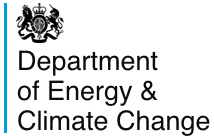 DECC, Sub-Saharan Africa (since September 2015): Delivery Partner Reviews for projects in the International Climate Fund (Financial expert).
DECC, Sub-Saharan Africa (since September 2015): Delivery Partner Reviews for projects in the International Climate Fund (Financial expert). UNEP, Ghana-Bénin (2012-2013): National Climate Finance Institutions Support Programme (NCFISP), funded by the Ministry of Environment of Germany (BMU.)
UNEP, Ghana-Bénin (2012-2013): National Climate Finance Institutions Support Programme (NCFISP), funded by the Ministry of Environment of Germany (BMU.) AFD, West Africa (2012-April 2013): Design of a technical assistance programme in support of an AFD credit line targeting EERE projects.
AFD, West Africa (2012-April 2013): Design of a technical assistance programme in support of an AFD credit line targeting EERE projects. CDKN, Kenya (2011-2012): Design of a national climate fund for Kenya
CDKN, Kenya (2011-2012): Design of a national climate fund for Kenya AFD, Indonesia (April-May 2011): Advice to AFD on the design of a ‘capacity enhancement programme’ for Bank Mandiri, IFC, 2010: Review of the compliance of a coal-based private sector project in Kazakhstan with WBG policy on coal-fired projects
AFD, Indonesia (April-May 2011): Advice to AFD on the design of a ‘capacity enhancement programme’ for Bank Mandiri, IFC, 2010: Review of the compliance of a coal-based private sector project in Kazakhstan with WBG policy on coal-fired projects AFD, Global (2010): Development of an MS Excel-based tool to calculate financial parameters of EE projects (IRR, WACC, NPV, etc.) and ascertain their viability and bankability.
AFD, Global (2010): Development of an MS Excel-based tool to calculate financial parameters of EE projects (IRR, WACC, NPV, etc.) and ascertain their viability and bankability. UNITED NATIONS FRAMEWORK CONVENTION ON CLIMATE CHANGE (UNFCCC), Developing countries (2010): Design of a concessional loan scheme to finance CDM project development costs.
UNITED NATIONS FRAMEWORK CONVENTION ON CLIMATE CHANGE (UNFCCC), Developing countries (2010): Design of a concessional loan scheme to finance CDM project development costs. GIZ, Tunisie (Juillet 2016-ongoing) Financing Tunisia’s INDC with the GCF
GIZ, Tunisie (Juillet 2016-ongoing) Financing Tunisia’s INDC with the GCF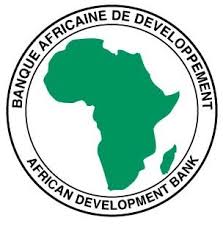 AfDB, Developing a Pilot reimbursable grant mechanism for the AfDB’s Project Preparation Facility (SEFA); April 2016-ongoing
AfDB, Developing a Pilot reimbursable grant mechanism for the AfDB’s Project Preparation Facility (SEFA); April 2016-ongoing
Études de faisabilité ou de marché
 AfDB, Cameroon, Kenya, Nigeria, South Africa (March-July 2016): Market studies on sustainable energy financing facilities
AfDB, Cameroon, Kenya, Nigeria, South Africa (March-July 2016): Market studies on sustainable energy financing facilities BNP PARIBAS, France (2014): Market study on potential market for EE retrofitting of private homes in various EU countries.
BNP PARIBAS, France (2014): Market study on potential market for EE retrofitting of private homes in various EU countries. ENERGY POOL (SCHNEIDER ELECTRIC), Africa (2013): Advice on project funding opportunities.
ENERGY POOL (SCHNEIDER ELECTRIC), Africa (2013): Advice on project funding opportunities. AFD, Indonesia (2012): Promotion of investments in the sustainable forestry sector.
AFD, Indonesia (2012): Promotion of investments in the sustainable forestry sector. AFD, Central Africa (2012): Bank financing of sustainable forest management in the Congo River Basin (‘FinForTrop’ programme)
AFD, Central Africa (2012): Bank financing of sustainable forest management in the Congo River Basin (‘FinForTrop’ programme) EIB, Lebanon (2011-2012) Market and feasibility study for an Energy Efficiency and Renewable Energy Finance EIB (and AFD) credit line to local banks
EIB, Lebanon (2011-2012) Market and feasibility study for an Energy Efficiency and Renewable Energy Finance EIB (and AFD) credit line to local banks AFD, South Africa (Mar-Jun 2009): Advice to AFD on the structuring of a €120mln concessional credit line for EE and RE projects to local banks
AFD, South Africa (Mar-Jun 2009): Advice to AFD on the structuring of a €120mln concessional credit line for EE and RE projects to local banks AFD, Turkey (May-Jun 2009): Advice to AFD on the structuring of a €100mln credit line for EE and RE projects to TSKB and TEB banks
AFD, Turkey (May-Jun 2009): Advice to AFD on the structuring of a €100mln credit line for EE and RE projects to TSKB and TEB banks AFD, China (Sept-Oct 2009): Advice to AFD on the structuring of a second €120M (sovereign-guaranteed) concessional credit line for energy efficiency (EE) and renewable energy (RE)
AFD, China (Sept-Oct 2009): Advice to AFD on the structuring of a second €120M (sovereign-guaranteed) concessional credit line for energy efficiency (EE) and renewable energy (RE)
Evaluations de programmes ou projets
 PROPARCO, Global – Brazil –Turkey (November 2016-April 2017): Evaluation of 14 green credit lines.
PROPARCO, Global – Brazil –Turkey (November 2016-April 2017): Evaluation of 14 green credit lines.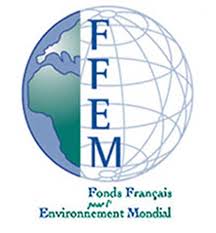 FFEM, Cambodia (May-June 2014): Final evaluation of the Nexus for carbon project (in cooperation with Climat Focus BV), which received a FFEM grant of €1.35M.
FFEM, Cambodia (May-June 2014): Final evaluation of the Nexus for carbon project (in cooperation with Climat Focus BV), which received a FFEM grant of €1.35M. Caisse des Dépôts et Consignations (FRANCE), France (2014): Evaluation of the 2011 convention between the French government and CDC on energy efficiency and renewable energy.
Caisse des Dépôts et Consignations (FRANCE), France (2014): Evaluation of the 2011 convention between the French government and CDC on energy efficiency and renewable energy. FFEM, China (May-June 2014): Final evaluation of Rural Carbon Project in China (in cooperation with Climat Focus BV), which received a FFEM grant of €1M.
FFEM, China (May-June 2014): Final evaluation of Rural Carbon Project in China (in cooperation with Climat Focus BV), which received a FFEM grant of €1M. AFD, China (2012-2013): Ex-post evaluation of the first (2008-2009) AFD €60M energy efficiency and renewable energy credit line
AFD, China (2012-2013): Ex-post evaluation of the first (2008-2009) AFD €60M energy efficiency and renewable energy credit line DFID, Indonesia (July-November 2013): Organisational audit of PIP, the state investment agency of Indonesia, under the DFID-funded Low Carbon Support Programme to the Ministry of Finance (MoF) of Indonesia.
DFID, Indonesia (July-November 2013): Organisational audit of PIP, the state investment agency of Indonesia, under the DFID-funded Low Carbon Support Programme to the Ministry of Finance (MoF) of Indonesia. AFD, China (2012-2013): Ex-post evaluation of the first (2008-2009) AFD €60M energy efficiency and renewable energy credit line
AFD, China (2012-2013): Ex-post evaluation of the first (2008-2009) AFD €60M energy efficiency and renewable energy credit line UNEP, Asia-Africa (2012): Mid-term evaluation of the GEF-funded Seed Capital Assistance Facility (SCAF) co-implemented by UNEP, Asian Development Bank, with participation of African Development Bank and Frankfurt School of Finance and Management.
UNEP, Asia-Africa (2012): Mid-term evaluation of the GEF-funded Seed Capital Assistance Facility (SCAF) co-implemented by UNEP, Asian Development Bank, with participation of African Development Bank and Frankfurt School of Finance and Management. FFEM, Developing countries (2012): Livelihoods Fund – Review
FFEM, Developing countries (2012): Livelihoods Fund – Review IDB, Latin American and Caribbean (2011-2012): Comprehensive study of the MIF
IDB, Latin American and Caribbean (2011-2012): Comprehensive study of the MIF FFEM, Eastern Europe and Former Soviet Union (2010-2011): Monitoring and evaluation of UNECE’s “Financing Energy Efficiency Investments” project.
FFEM, Eastern Europe and Former Soviet Union (2010-2011): Monitoring and evaluation of UNECE’s “Financing Energy Efficiency Investments” project.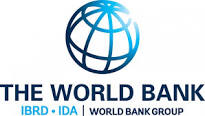 WORLD BANK (IBRD-IEG) Central and Eastern Europe and Russia (2010): Evaluation of World Bank Group projects financing energy efficiency investments through intermediaries (financial institutions, and ESCOs.)
WORLD BANK (IBRD-IEG) Central and Eastern Europe and Russia (2010): Evaluation of World Bank Group projects financing energy efficiency investments through intermediaries (financial institutions, and ESCOs.)
Analyse ou élaboration de politiques et stratégies publiques
 UNDP, Cambodia (January-June 2016): Study on Private sector response to climate change
UNDP, Cambodia (January-June 2016): Study on Private sector response to climate change AfDB, Africa regional (October 2015-February 2016): Regional integration and climate change.
AfDB, Africa regional (October 2015-February 2016): Regional integration and climate change. INTERNATIONAL CLIMATE INITIATIVE, Tunisia (Dec 2015 –Feb 2016): EE in buildings NAMA; support on financial mechanism of the NAMA
INTERNATIONAL CLIMATE INITIATIVE, Tunisia (Dec 2015 –Feb 2016): EE in buildings NAMA; support on financial mechanism of the NAMA FRENCH TREASURY (DGT), Global (June-October 2015): Study on private climate finance in developing countries mobilised by French public climate finance (Team Leader).
FRENCH TREASURY (DGT), Global (June-October 2015): Study on private climate finance in developing countries mobilised by French public climate finance (Team Leader). EXPERTISE FRANCE, Côte d’Ivoire and Cameroun (May-Sept 2015): Preparation of the Intended Nationally Determined Contributions (INDC)
EXPERTISE FRANCE, Côte d’Ivoire and Cameroun (May-Sept 2015): Preparation of the Intended Nationally Determined Contributions (INDC) DFID, Tanzania (2014): Tanzania Climate Change Roadmap.
DFID, Tanzania (2014): Tanzania Climate Change Roadmap. UNITED NATIONS DEVELOPMENT PROGRAMME (UNDP), Benin (2013): Bénin Climate Finance Readiness Programme
UNITED NATIONS DEVELOPMENT PROGRAMME (UNDP), Benin (2013): Bénin Climate Finance Readiness Programme FFEM, Developing countries (2012-May 2013): Defining FFEM’s priorities on adaptation to climate change
FFEM, Developing countries (2012-May 2013): Defining FFEM’s priorities on adaptation to climate change World Bank, Uzbekistan (2012): Energy efficiency strategy for industrial enterprises in Uzbekistan, with Econoler International (Canada).
World Bank, Uzbekistan (2012): Energy efficiency strategy for industrial enterprises in Uzbekistan, with Econoler International (Canada). World Bank, Global (2012): Results-Based Financing in the Energy Sector, with Vivid Economics (UK).
World Bank, Global (2012): Results-Based Financing in the Energy Sector, with Vivid Economics (UK). ORGANIZATION FOR THE SECURITY AND COOPERATION IN EUROPE (OSCE), Regional (2011): Review on the implementation by the OSCE participating states (56) of their energy efficiency commitments.
ORGANIZATION FOR THE SECURITY AND COOPERATION IN EUROPE (OSCE), Regional (2011): Review on the implementation by the OSCE participating states (56) of their energy efficiency commitments. CAISSE DES DEPOTS ET CONSIGNATIONS, Global (2010-2011): Strategic advice and advice on investments in carbon assets or carbon funds
CAISSE DES DEPOTS ET CONSIGNATIONS, Global (2010-2011): Strategic advice and advice on investments in carbon assets or carbon funds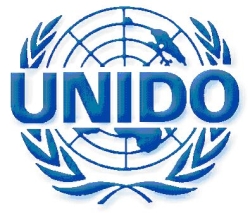 UNITED NATIONS INDUSTRIAL DEVELOPMENT ORGANIZATION (UNIDO), Global (2010): Advice on strategy to mobilise co-financing in connection with GEF projects (UNIDO is a GEF implementing agency)
UNITED NATIONS INDUSTRIAL DEVELOPMENT ORGANIZATION (UNIDO), Global (2010): Advice on strategy to mobilise co-financing in connection with GEF projects (UNIDO is a GEF implementing agency) World Bank, Germany (2010): Study on Germany’s energy efficiency policy between 1990 and 2007.
World Bank, Germany (2010): Study on Germany’s energy efficiency policy between 1990 and 2007. UNITED NATIONS ECONOMIC COMMISSION FOR EUROPE (UNECE), Global (2009): Survey of 22 public and private schemes to finance energy efficiency and/or renewable energy projects.
UNITED NATIONS ECONOMIC COMMISSION FOR EUROPE (UNECE), Global (2009): Survey of 22 public and private schemes to finance energy efficiency and/or renewable energy projects.
EU 28 (since October 2015): Private Finance for Energy Efficiency (PF4EE) - Expert Support Facility (ESF)
 DECC, Sub-Saharan Africa (since September 2015): Delivery Partner Reviews for projects in the International Climate Fund (Financial expert).
DECC, Sub-Saharan Africa (since September 2015): Delivery Partner Reviews for projects in the International Climate Fund (Financial expert). UNEP, Ghana-Bénin (2012-2013): National Climate Finance Institutions Support Programme (NCFISP), funded by the Ministry of Environment of Germany (BMU.)
UNEP, Ghana-Bénin (2012-2013): National Climate Finance Institutions Support Programme (NCFISP), funded by the Ministry of Environment of Germany (BMU.) AFD, West Africa (2012-April 2013): Design of a technical assistance programme in support of an AFD credit line targeting EERE projects.
AFD, West Africa (2012-April 2013): Design of a technical assistance programme in support of an AFD credit line targeting EERE projects. CDKN, Kenya (2011-2012): Design of a national climate fund for Kenya
CDKN, Kenya (2011-2012): Design of a national climate fund for Kenya AFD, Indonesia (April-May 2011): Advice to AFD on the design of a ‘capacity enhancement programme’ for Bank Mandiri, IFC, 2010: Review of the compliance of a coal-based private sector project in Kazakhstan with WBG policy on coal-fired projects
AFD, Indonesia (April-May 2011): Advice to AFD on the design of a ‘capacity enhancement programme’ for Bank Mandiri, IFC, 2010: Review of the compliance of a coal-based private sector project in Kazakhstan with WBG policy on coal-fired projects AFD, Global (2010): Development of an MS Excel-based tool to calculate financial parameters of EE projects (IRR, WACC, NPV, etc.) and ascertain their viability and bankability.
AFD, Global (2010): Development of an MS Excel-based tool to calculate financial parameters of EE projects (IRR, WACC, NPV, etc.) and ascertain their viability and bankability.UNITED NATIONS FRAMEWORK CONVENTION ON CLIMATE CHANGE (UNFCCC), Developing countries (2010): Design of a concessional loan scheme to finance CDM project development costs.
 GIZ, Tunisie (Juillet 2016-ongoing) Financing Tunisia’s INDC with the GCF
GIZ, Tunisie (Juillet 2016-ongoing) Financing Tunisia’s INDC with the GCF AfDB, Developing a Pilot reimbursable grant mechanism for the AfDB’s Project Preparation Facility (SEFA); April 2016-ongoing
AfDB, Developing a Pilot reimbursable grant mechanism for the AfDB’s Project Preparation Facility (SEFA); April 2016-ongoing AfDB, Cameroon, Kenya, Nigeria, South Africa (March-July 2016): Market studies on sustainable energy financing facilities
AfDB, Cameroon, Kenya, Nigeria, South Africa (March-July 2016): Market studies on sustainable energy financing facilities BNP PARIBAS, France (2014): Market study on potential market for EE retrofitting of private homes in various EU countries.
BNP PARIBAS, France (2014): Market study on potential market for EE retrofitting of private homes in various EU countries. ENERGY POOL (SCHNEIDER ELECTRIC), Africa (2013): Advice on project funding opportunities.
ENERGY POOL (SCHNEIDER ELECTRIC), Africa (2013): Advice on project funding opportunities. AFD, Indonesia (2012): Promotion of investments in the sustainable forestry sector.
AFD, Indonesia (2012): Promotion of investments in the sustainable forestry sector. AFD, Central Africa (2012): Bank financing of sustainable forest management in the Congo River Basin (‘FinForTrop’ programme)
AFD, Central Africa (2012): Bank financing of sustainable forest management in the Congo River Basin (‘FinForTrop’ programme)EIB, Lebanon (2011-2012) Market and feasibility study for an Energy Efficiency and Renewable Energy Finance EIB (and AFD) credit line to local banks
 AFD, South Africa (Mar-Jun 2009): Advice to AFD on the structuring of a €120mln concessional credit line for EE and RE projects to local banks
AFD, South Africa (Mar-Jun 2009): Advice to AFD on the structuring of a €120mln concessional credit line for EE and RE projects to local banks AFD, Turkey (May-Jun 2009): Advice to AFD on the structuring of a €100mln credit line for EE and RE projects to TSKB and TEB banks
AFD, Turkey (May-Jun 2009): Advice to AFD on the structuring of a €100mln credit line for EE and RE projects to TSKB and TEB banks AFD, China (Sept-Oct 2009): Advice to AFD on the structuring of a second €120M (sovereign-guaranteed) concessional credit line for energy efficiency (EE) and renewable energy (RE)
AFD, China (Sept-Oct 2009): Advice to AFD on the structuring of a second €120M (sovereign-guaranteed) concessional credit line for energy efficiency (EE) and renewable energy (RE) PROPARCO, Global – Brazil –Turkey (November 2016-April 2017): Evaluation of 14 green credit lines.
PROPARCO, Global – Brazil –Turkey (November 2016-April 2017): Evaluation of 14 green credit lines. FFEM, Cambodia (May-June 2014): Final evaluation of the Nexus for carbon project (in cooperation with Climat Focus BV), which received a FFEM grant of €1.35M.
FFEM, Cambodia (May-June 2014): Final evaluation of the Nexus for carbon project (in cooperation with Climat Focus BV), which received a FFEM grant of €1.35M. Caisse des Dépôts et Consignations (FRANCE), France (2014): Evaluation of the 2011 convention between the French government and CDC on energy efficiency and renewable energy.
Caisse des Dépôts et Consignations (FRANCE), France (2014): Evaluation of the 2011 convention between the French government and CDC on energy efficiency and renewable energy. FFEM, China (May-June 2014): Final evaluation of Rural Carbon Project in China (in cooperation with Climat Focus BV), which received a FFEM grant of €1M.
FFEM, China (May-June 2014): Final evaluation of Rural Carbon Project in China (in cooperation with Climat Focus BV), which received a FFEM grant of €1M. AFD, China (2012-2013): Ex-post evaluation of the first (2008-2009) AFD €60M energy efficiency and renewable energy credit line
AFD, China (2012-2013): Ex-post evaluation of the first (2008-2009) AFD €60M energy efficiency and renewable energy credit line DFID, Indonesia (July-November 2013): Organisational audit of PIP, the state investment agency of Indonesia, under the DFID-funded Low Carbon Support Programme to the Ministry of Finance (MoF) of Indonesia.
DFID, Indonesia (July-November 2013): Organisational audit of PIP, the state investment agency of Indonesia, under the DFID-funded Low Carbon Support Programme to the Ministry of Finance (MoF) of Indonesia. AFD, China (2012-2013): Ex-post evaluation of the first (2008-2009) AFD €60M energy efficiency and renewable energy credit line
AFD, China (2012-2013): Ex-post evaluation of the first (2008-2009) AFD €60M energy efficiency and renewable energy credit line UNEP, Asia-Africa (2012): Mid-term evaluation of the GEF-funded Seed Capital Assistance Facility (SCAF) co-implemented by UNEP, Asian Development Bank, with participation of African Development Bank and Frankfurt School of Finance and Management.
UNEP, Asia-Africa (2012): Mid-term evaluation of the GEF-funded Seed Capital Assistance Facility (SCAF) co-implemented by UNEP, Asian Development Bank, with participation of African Development Bank and Frankfurt School of Finance and Management. FFEM, Developing countries (2012): Livelihoods Fund – Review
FFEM, Developing countries (2012): Livelihoods Fund – Review IDB, Latin American and Caribbean (2011-2012): Comprehensive study of the MIF
IDB, Latin American and Caribbean (2011-2012): Comprehensive study of the MIF FFEM, Eastern Europe and Former Soviet Union (2010-2011): Monitoring and evaluation of UNECE’s “Financing Energy Efficiency Investments” project.
FFEM, Eastern Europe and Former Soviet Union (2010-2011): Monitoring and evaluation of UNECE’s “Financing Energy Efficiency Investments” project. WORLD BANK (IBRD-IEG) Central and Eastern Europe and Russia (2010): Evaluation of World Bank Group projects financing energy efficiency investments through intermediaries (financial institutions, and ESCOs.)
WORLD BANK (IBRD-IEG) Central and Eastern Europe and Russia (2010): Evaluation of World Bank Group projects financing energy efficiency investments through intermediaries (financial institutions, and ESCOs.) UNDP, Cambodia (January-June 2016): Study on Private sector response to climate change
UNDP, Cambodia (January-June 2016): Study on Private sector response to climate change AfDB, Africa regional (October 2015-February 2016): Regional integration and climate change.
AfDB, Africa regional (October 2015-February 2016): Regional integration and climate change.INTERNATIONAL CLIMATE INITIATIVE, Tunisia (Dec 2015 –Feb 2016): EE in buildings NAMA; support on financial mechanism of the NAMA
 FRENCH TREASURY (DGT), Global (June-October 2015): Study on private climate finance in developing countries mobilised by French public climate finance (Team Leader).
FRENCH TREASURY (DGT), Global (June-October 2015): Study on private climate finance in developing countries mobilised by French public climate finance (Team Leader). EXPERTISE FRANCE, Côte d’Ivoire and Cameroun (May-Sept 2015): Preparation of the Intended Nationally Determined Contributions (INDC)
EXPERTISE FRANCE, Côte d’Ivoire and Cameroun (May-Sept 2015): Preparation of the Intended Nationally Determined Contributions (INDC) DFID, Tanzania (2014): Tanzania Climate Change Roadmap.
DFID, Tanzania (2014): Tanzania Climate Change Roadmap. UNITED NATIONS DEVELOPMENT PROGRAMME (UNDP), Benin (2013): Bénin Climate Finance Readiness Programme
UNITED NATIONS DEVELOPMENT PROGRAMME (UNDP), Benin (2013): Bénin Climate Finance Readiness Programme FFEM, Developing countries (2012-May 2013): Defining FFEM’s priorities on adaptation to climate change
FFEM, Developing countries (2012-May 2013): Defining FFEM’s priorities on adaptation to climate change World Bank, Uzbekistan (2012): Energy efficiency strategy for industrial enterprises in Uzbekistan, with Econoler International (Canada).
World Bank, Uzbekistan (2012): Energy efficiency strategy for industrial enterprises in Uzbekistan, with Econoler International (Canada). World Bank, Global (2012): Results-Based Financing in the Energy Sector, with Vivid Economics (UK).
World Bank, Global (2012): Results-Based Financing in the Energy Sector, with Vivid Economics (UK). ORGANIZATION FOR THE SECURITY AND COOPERATION IN EUROPE (OSCE), Regional (2011): Review on the implementation by the OSCE participating states (56) of their energy efficiency commitments.
ORGANIZATION FOR THE SECURITY AND COOPERATION IN EUROPE (OSCE), Regional (2011): Review on the implementation by the OSCE participating states (56) of their energy efficiency commitments. CAISSE DES DEPOTS ET CONSIGNATIONS, Global (2010-2011): Strategic advice and advice on investments in carbon assets or carbon funds
CAISSE DES DEPOTS ET CONSIGNATIONS, Global (2010-2011): Strategic advice and advice on investments in carbon assets or carbon funds UNITED NATIONS INDUSTRIAL DEVELOPMENT ORGANIZATION (UNIDO), Global (2010): Advice on strategy to mobilise co-financing in connection with GEF projects (UNIDO is a GEF implementing agency)
UNITED NATIONS INDUSTRIAL DEVELOPMENT ORGANIZATION (UNIDO), Global (2010): Advice on strategy to mobilise co-financing in connection with GEF projects (UNIDO is a GEF implementing agency) World Bank, Germany (2010): Study on Germany’s energy efficiency policy between 1990 and 2007.
World Bank, Germany (2010): Study on Germany’s energy efficiency policy between 1990 and 2007. UNITED NATIONS ECONOMIC COMMISSION FOR EUROPE (UNECE), Global (2009): Survey of 22 public and private schemes to finance energy efficiency and/or renewable energy projects.
UNITED NATIONS ECONOMIC COMMISSION FOR EUROPE (UNECE), Global (2009): Survey of 22 public and private schemes to finance energy efficiency and/or renewable energy projects.